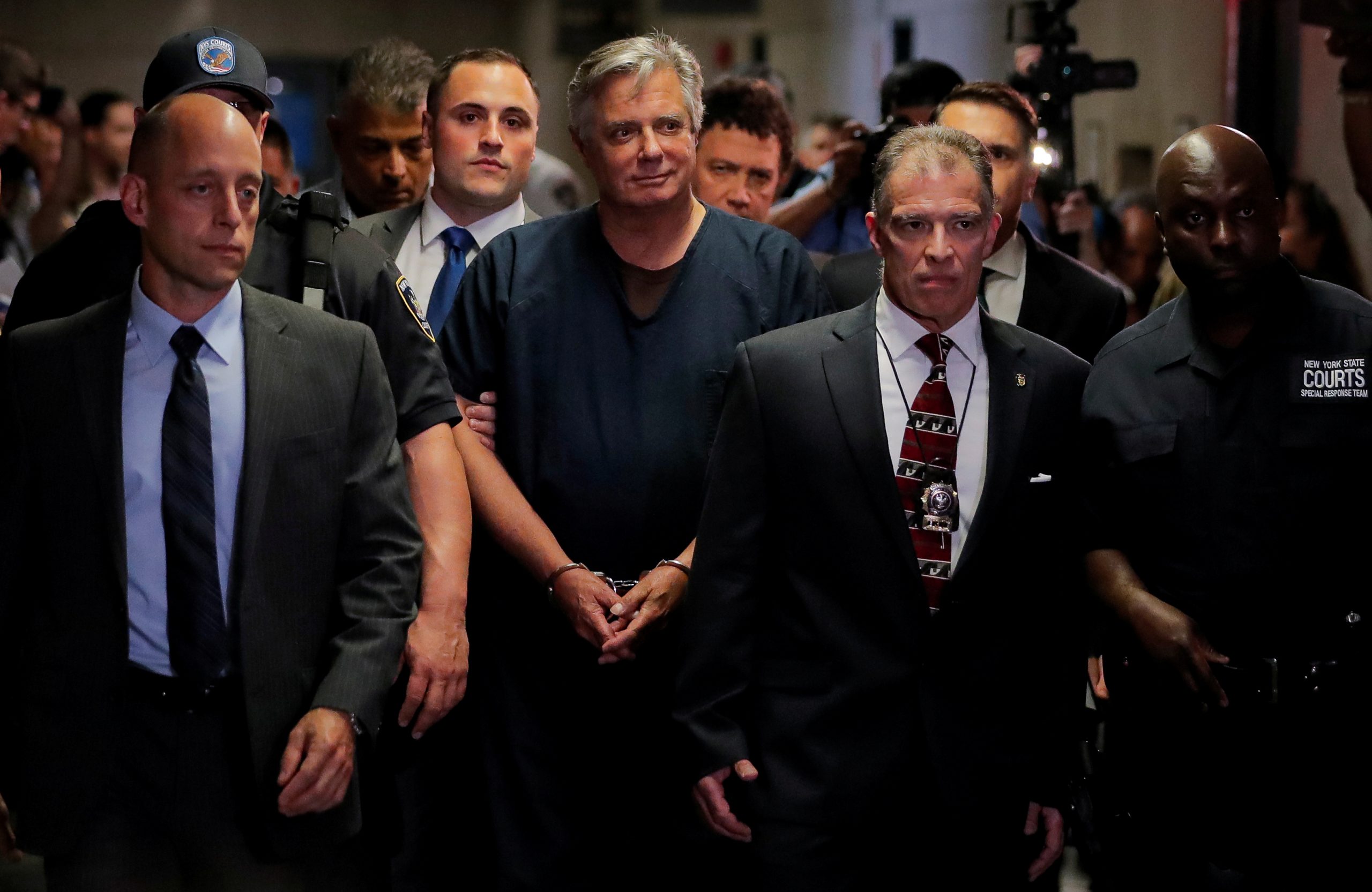A New York appeals court on Thursday upheld the dismissal of state fraud charges against Paul Manafort, saying that reviving the case against U.S. President Donald Trump’s former campaign chairman would violate double jeopardy rules.
In a 4-0 vote, the intermediate-level Appellate Division rejected Manhattan District Attorney Cyrus Vance’s claim that his case against Manafort warranted an exception to a state law against trying him twice for the same conduct.
Danny Frost, a spokesman for Vance, said his office will consider its appellate options.
Vance announced Manafort’s indictment on 16 felony counts in March 2019 less than an hour after a judge sentenced Manafort to 7-1/2 years in prison on federal charges.
The federal case stemmed from former U.S. Special Counsel Robert Mueller’s probe into Russian interference in the 2016 U.S. presidential election, leading to Manafort’s August 2018 conviction for tax evasion and bank fraud.
Manafort worked on Trump’s White House campaign for five months in 2016.
In dismissing Vance’s case last December, Manhattan trial judge Maxwell Wiley said the federal bank fraud and state residential mortgage fraud laws under which Manafort was prosecuted were intended to combat lending abuses and avert a financial crisis.
Wiley said the laws did not target “very different kinds of harm or evil,” an exception to New York double jeopardy protections, and therefore Vance could not prosecute Manafort.
The appeals court agreed, saying the differences Vance cited between the laws “fall far short of satisfying the ‘very different kinds’ test.”
Todd Blanche, a lawyer for Manafort, welcomed the decision, calling the indictment from Vance “a clear violation of New York law.”
Manafort, 71, was released to home confinement in May, after his lawyers said his health problems put him at higher risk should he contract the coronavirus in prison.
A conviction for Vance, a Democrat, could have ensured legal accountability for Manafort even if Trump, a Republican, pardoned him.
U.S. presidents cannot pardon people for state crimes.
(Reporting by Jonathan Stempel in New York; Additional reporting by Karen Freifeld; Editing by Daniel Wallis)

























 Continue with Google
Continue with Google